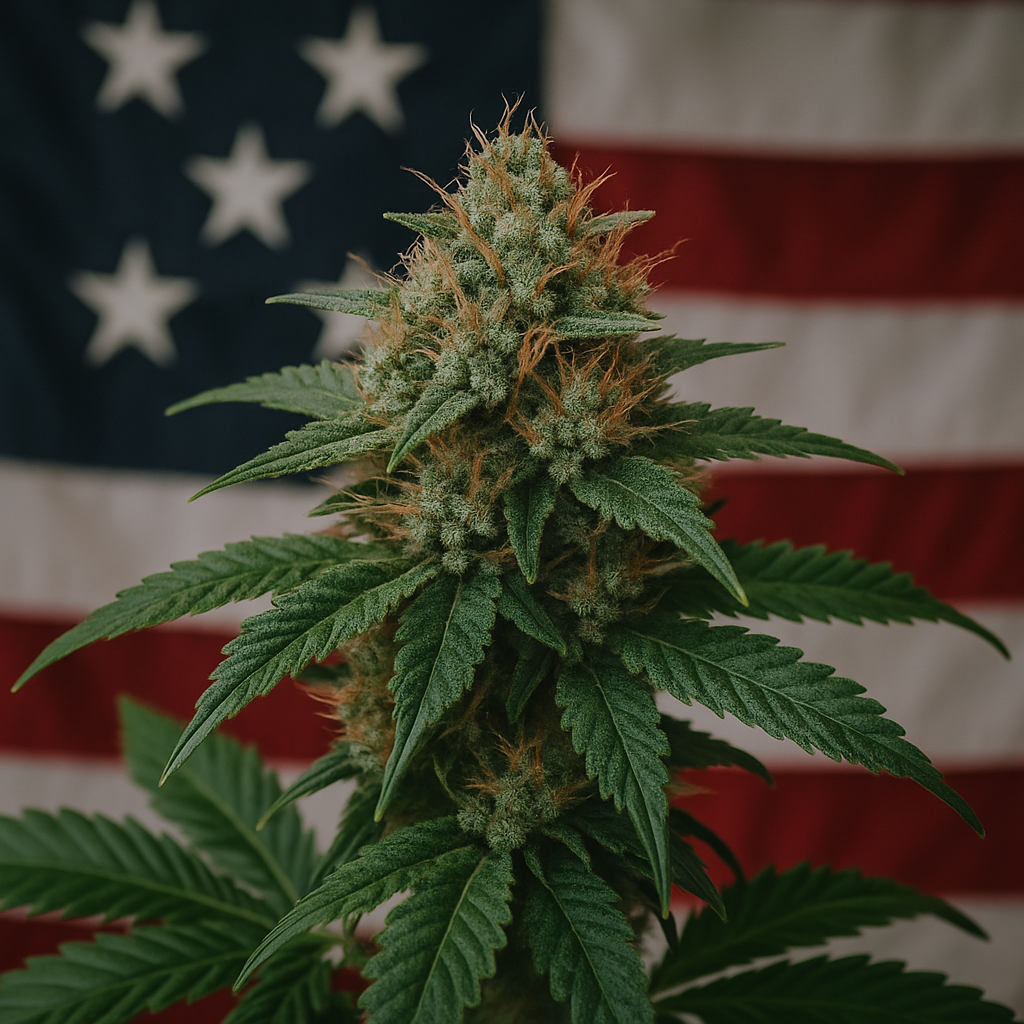The federal government is finally cracking its armor on cannabis, but the way it’s happening says everything about the political moment we’re in. On the campaign trail and in recent press conferences, Donald Trump has signaled (on and off and on again, et cetera) that his administration is prepared to reclassify cannabis from Schedule I to Schedule III under the Controlled Substances Act. For decades, Washington pretended weed belonged in the same bucket as heroin, with “no accepted medical use.” Now, less than two months into Trump’s second term, that fiction is slipping.
If the rescheduling goes through, the immediate effects are real. IRS Code 280E would no longer strangle cannabis companies, the rule that bars businesses trafficking in Schedule I drugs from deducting basic expenses. It’s a tax penalty so punishing that some operators pay effective rates north of 70 percent while competing with untaxed illicit sellers. Reclassification would also make it easier for researchers to actually study the plant, an irony considering nearly 90 percent of Americans already support some form of legal cannabis, and 38 states run medical or adult-use programs. The symbolism matters too: the federal government finally admitting cannabis has medical value after decades of denial.
But it’s not legalization. Dispensaries in Los Angeles or Denver will remain technically illegal under federal law. There’s still no national framework for safety standards or interstate commerce. Records for past possession charges won’t magically clear, and nobody serving a federal sentence for cannabis is walking out tomorrow. Rescheduling helps with taxes and research, but it doesn’t resolve the contradictions that force cannabis into a liminal legal space.
That ambiguity is political. Biden started this process in 2022 when he ordered a scheduling review and issued blanket pardons for federal simple possession cases. His health agencies recommended Schedule III. Trump, now back in power, is poised to finish the job. The partisan lines are not what you’d expect. Democrats have long framed cannabis reform as both economic opportunity and racial justice—Representative Jerrold Nadler’s MORE Act, which would deschedule cannabis entirely, passed the House twice when Democrats controlled it. Comprehensive legalization remains their official line, though the Senate has never delivered.
Trump’s calculation is different. He understands that his base is split. Libertarian-leaning conservatives support medical access and the principle of state autonomy. Red-state voters have passed medical initiatives, and Republican legislators like Florida’s Greg Steube have filed bills to move marijuana from Schedule I to III.
At the same time, prohibitionist hardliners still dominate parts of the MAGA coalition. They view cannabis as a cultural wedge, something that corrodes traditional values. Just last month, a bloc of Republican members of Congress sent Trump a letter warning that rescheduling would “empower Big Marijuana” and “send the wrong message to children.” Trump’s public comments capture the tension: “Some people like it. Some people hate it. Some people think it does bad for the children.” He’s not wrong—his own supporters can’t agree.
That’s why rescheduling is the perfect Trump move. It allows him to claim a reform victory without endorsing legalization. It mollifies the business community and younger voters, while avoiding a frontal assault on the culture warriors. For cannabis advocates, the relief will be tangible, but it comes with a catch: this is a half-step.
And half-steps can create strange hierarchies. Pharmaceutical companies and university labs will now be able to handle cannabis with federal blessing, filing patents and developing drugs if they choose to. Meanwhile, the legal dispensary down the street from anyone, anywhere in the United States still technically operates in a gray market, vulnerable to raids or banking crackdowns if the political landscape shifts again. It’s not hard to imagine a two-tier system emerging: corporate weed elevated, consumer weed still criminalized.
Public opinion has already sprinted ahead of Washington. Two-thirds of Americans now support full federal legalization. Nearly half of Republicans say the same, and among Democrats, the number approaches 80 percent. These are not fringe positions anymore. Legalization is mainstream, and the country’s lived reality reflects it. Millions of people buy legal weed every week; billions in tax revenue flow to state coffers; cannabis is one of the fastest-growing industries in America. Yet federal law remains frozen in a prohibitionist pose.
That tension—between the lived experience of voters and the cautious incrementalism of federal policy—is the real story here. Rescheduling will make life easier for operators and researchers, and that’s worth celebrating. But the more profound contradictions remain. Until cannabis is descheduled entirely, the patchwork persists: uneven justice, confusing regulation, and a marketplace that rewards scale over equity.
There’s a risk in mistaking reclassification for the finish line. The economic stakes are massive, ranging from small operators barely hanging on under Section 280E to patients who need consistent access to products they can trust. The cultural stakes are just as high: after decades of propaganda, Americans are finally seeing cannabis for what it is, not what politicians told them it was. Ending prohibition outright would cement that shift.
Rescheduling is progress. But legalization is the destination. Until federal law recognizes what the states and the public already know, we’ll be stuck in the limbo of half-measures. That’s not enough.






